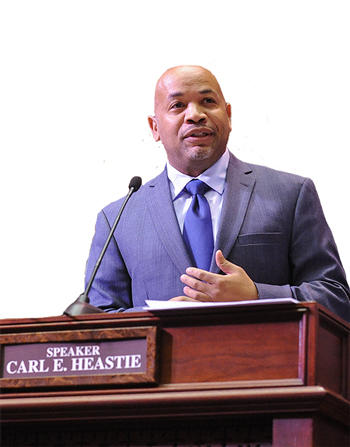With the state budget out of the way, officials are now focusing on a series of sweeping changes to New York’s rent regulation laws.

Assembly Speaker Carl Heastie
Assembly Speaker Carl Heastie on Tuesday announced a package of bills that seek to eliminate vacancy decontrol and bonuses, as well as the programs that allow landlords to increase rents based on renovation work (major capital improvements and individual apartment improvements). Another seeks to change how preferential rents (amounts below the legally allowed rates in rent stabilized units) work: Landlords can no longer jack up such rents immediately upon lease renewal. Instead, they can only increase the preferential rent when the unit is vacant, which cannot be the “result of the failure of the owner to maintain a habitable residence.”
Another measure looks to increase the amount of time a rent-regulated tenant has to file a complaint alleging rent overcharges with the state Division of Housing and Community Renewal from four to six years. One new bill, introduced April 4, would expand certain eviction and rent protections beyond New York City and parts of Nassau, Rockland and Westchester counties.
“We have seen far too many families forced out of the neighborhoods they shaped because of the cost of rising rents and property speculators chasing profits over people,” Heastie said in a statement. “For too long, old factions of New York State government ignored this fact and thought that by stifling reform to the New York City rent laws it would not have an impact on them locally down the line.”
Many of these bills were introduced earlier this year and are now slated to be discussed during hearings on May 2 and 9. Heastie didn’t mention another bill proposed by Sen. Julia Salazar, and also introduced in the Assembly, which was considered by many to be a first step toward implementing “universal rent control” in New York.
The pro-landlord group Community Housing Improvement Program (CHIP) released a survey shortly before Heastie’s announcement, finding that eliminating the MCI and IAI programs would have “devastating consequences.” The survey — which featured responses from 182 CHIP members — found that a majority of owners would upgrade their units less often, use lower quality materials during renovations and make improvements less frequently.
“Some of the proposals on the table today are not a matter of squeezing business a little to check a political box—they would wipe out an industry of small business owners and send residents out of the city to find apartments that owners can actually afford to maintain,” Jay Martin, executive director of CHIP said in a statement. “Nobody wants our city’s housing stock to look like NYCHA, but if we underfund it like NYCHA, that’s exactly what will happen.”
Earlier this year, The Real Deal took a close look at the state’s IAI program and how it’s led to allegations of harassment and fraud.
